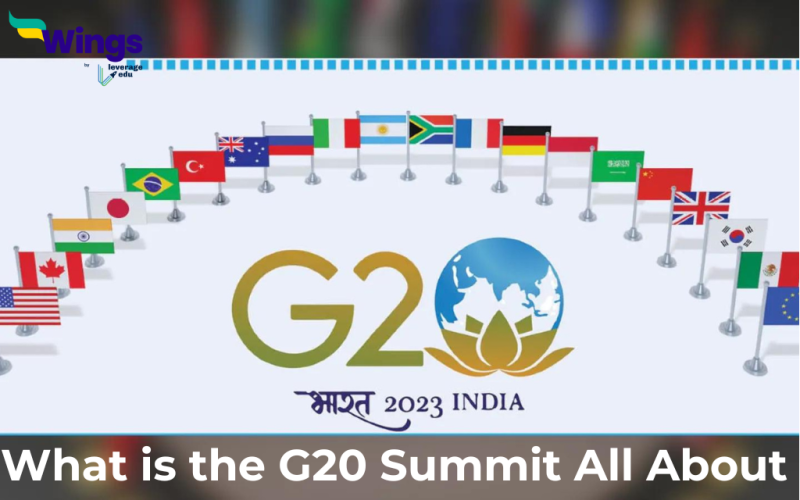What is the G20 Summit All About: The Group of Twenty commonly known as G20 is a premier forum for international economic cooperation. The major emphasis is laid on shaping and strengthening global architecture and governance on all major international economic issues.
The G20 comprises 19 member countries (Argentina, Australia, Brazil, Canada, China, France, Germany, India, Indonesia, Italy, Japan, Republic of Korea, Mexico, Russia, Saudi Arabia, South Africa, Turkiye, United Kingdom and United States) and the European Union. Around 85% of the global GDP, 75% of the global trade and two-thirds of the world population are represented by the members of the G20.
The invitees of the G20 summit are Bangladesh, Egypt, Mauritius, Netherlands, Nigeria, Oman, Singapore, Spain and UAE. International organisations such as the UN, IMF, WB, WHO, WTO, ILO, FSB and OECD along with Chairs of Regional Organisations like AU, AUDA-NEPAD and ASEAN and Guest IOs like ISA, CDRI and ADB are also invited to this annual forum.
Also Read: Youth 20 Theme and Major Events: G20 Summit 2023
Inception of G20
Table of Contents [show]
After the financial crisis in 1999, G20 was formed for the Finance Ministers and Central Bank Governors to look into the issues and discuss the problems related to the global economy and finance.
Elevation of G20 to Leader’s Level
The global economic and financial crisis of 2007 and 2009 led to the elevation of the G20 to the level of Heads of State/ Government. It was around the same time that it was designated the title “premier forum for international economic cooperation”.
Initially, the G20 mainly focused on broad macroeconomic issues but it has expanded its scope which now looks after trade, sustainable development, health, agriculture, energy, environment, climate change and anti-corruption.
This blog included the details on the topic “What is the G20 Summit All About”. We hope that this blog gave you the insights that you were looking for. To know more about such topics follow us on our official website of Leverage Edu.
 One app for all your study abroad needs
One app for all your study abroad needs















 45,000+ students trusted us with their dreams. Take the first step today!
45,000+ students trusted us with their dreams. Take the first step today!
